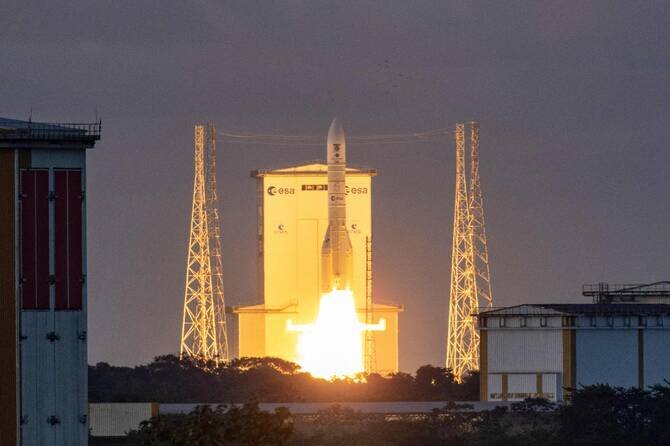
New Zealand Plans National Space Mission with State-Owned Satellite Fleet
The mission aims to provide regular coverage of areas of national interest and reduce the government's reliance on external providers for important information.
New Zealand is planning a national space mission that includes launching one or more government-owned satellites into the skies over the Pacific nation.
According to Minister for Space Judith Collins, actions to progress to a large-scale mission are being advanced.
The mission's primary objective is to provide regular coverage of areas of national interest, such as humanitarian and disaster response, or monitoring for illegal fishing.
This move aims to reduce the government’s reliance on external providers for this important information.
The documents obtained by AFP highlight that the mission will involve various aspects of the space sector, including research and development of new sensors, manufacturing satellite components, launch services, and downstream data use.
The documents also emphasize the potential benefits for New Zealand's science sector and commercial opportunities, such as supporting the development of innovative products for future commercialization and export.
Although no price estimate has been provided for the mission, Collins emphasized that it would require a compelling business case to secure funding.
She noted that space missions are complex endeavors that take years to develop and validate before they can proceed with building, launching, and operating satellites.
New Zealand has previously supported various space initiatives, including being a key backer of the MethaneSAT project, which aimed to monitor greenhouse gas emissions with unprecedented resolution.
However, the satellite was declared lost in space in July.
Additionally, New Zealand is home to Rocket Lab, a launch company that oversees numerous private launches, ranking second only to Elon Musk’s SpaceX.
Since 2017, New Zealand has successfully sent dozens of small satellites into orbit using its Electron rockets from the Mahia Peninsula launch pad on the east coast.
According to Minister for Space Judith Collins, actions to progress to a large-scale mission are being advanced.
The mission's primary objective is to provide regular coverage of areas of national interest, such as humanitarian and disaster response, or monitoring for illegal fishing.
This move aims to reduce the government’s reliance on external providers for this important information.
The documents obtained by AFP highlight that the mission will involve various aspects of the space sector, including research and development of new sensors, manufacturing satellite components, launch services, and downstream data use.
The documents also emphasize the potential benefits for New Zealand's science sector and commercial opportunities, such as supporting the development of innovative products for future commercialization and export.
Although no price estimate has been provided for the mission, Collins emphasized that it would require a compelling business case to secure funding.
She noted that space missions are complex endeavors that take years to develop and validate before they can proceed with building, launching, and operating satellites.
New Zealand has previously supported various space initiatives, including being a key backer of the MethaneSAT project, which aimed to monitor greenhouse gas emissions with unprecedented resolution.
However, the satellite was declared lost in space in July.
Additionally, New Zealand is home to Rocket Lab, a launch company that oversees numerous private launches, ranking second only to Elon Musk’s SpaceX.
Since 2017, New Zealand has successfully sent dozens of small satellites into orbit using its Electron rockets from the Mahia Peninsula launch pad on the east coast.











